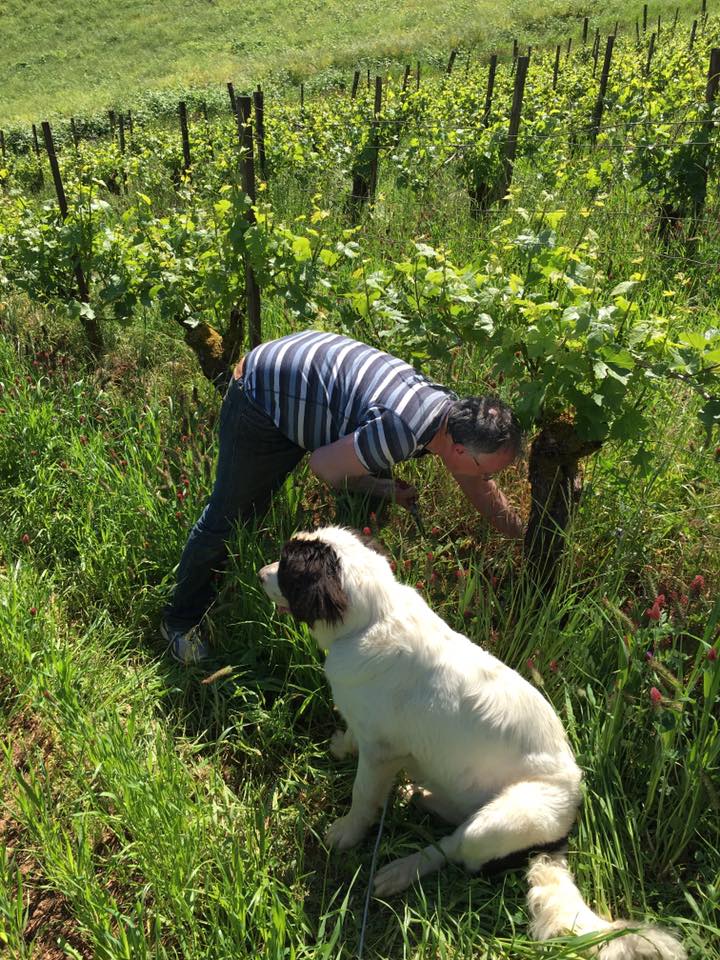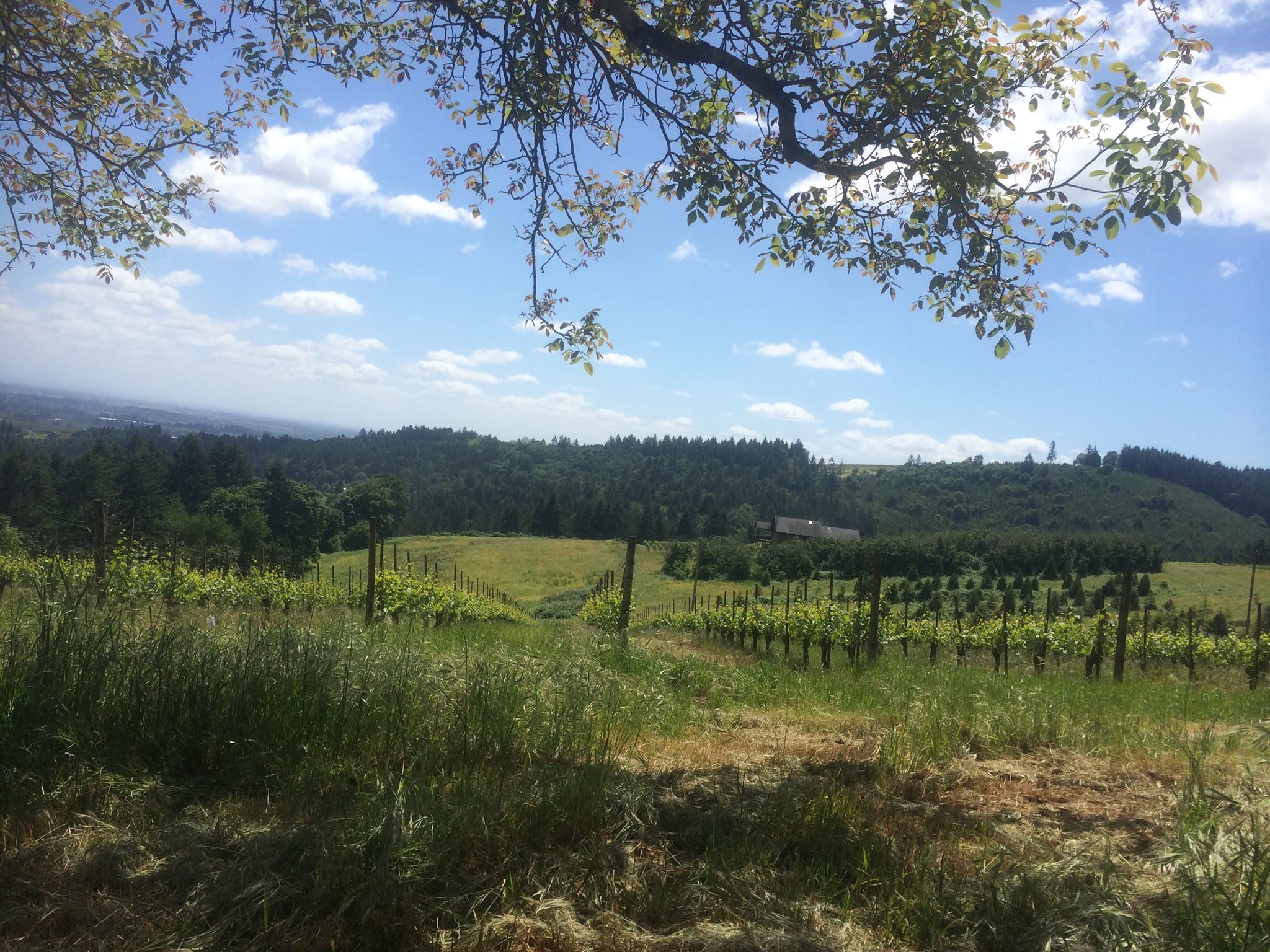
Portlandia
Oregon has a youthful wine culture that is largely in thrall to certain commercial imperatives. Pinot Noir still rules; the local wine industry wants Brand Oregon to be closely associated with this notionally sophisticated world class grape variety, but many of the wines are overwrought, lush and chocolatey, sacrificing elegance and beauty for crowd-pleasing power. This is everything to do with winemaking (by numbers) and little to do with evoking a sense of place. Viticulture and vinification are viewed as separate sciences that bolt the final wine into place. Talk to many growers and the discussion revolves more around clonal selection, vinification techiques and types of oak than how one should work in the vines. This is like a chef talking about the hardware of the modern kitchen rather than talking about the quality and origin of the ingredient.
The alternative wine scene in Oregon is a tight community– many of the young vignerons are based in and around Portland, and are happy to share ideas with their fellow travellers. Furthermore, Oregon has a strong feel for biodynamics – this is the home of Demeter USA after all, although there is perhaps less of a clear understanding of how to bring out terroir in the wines. If you are not farming as well as making the wine there is a natural disconnect – however, the new wave of growers is excited about provenance and are often instrumental in helping to bring some historical vineyards back into production.
Oregon vineyards in the 60s and 70s were planted to a host of grape varieties, not just Pinot Noir, but also Riesling, Gewurztraminer, Sylvaner, Gamay, Semillon, Blaufrankisch, Sauvignon, Malbec, Vermentino… It is not just that grape varieties are planted for the sake of diversity, it is important to understand how grapes and clones perform on certain soils, in specific localities.

Kelley Fox farms the Old Block in Maresh vineyard which is now celebrating its 46th birthday – Pinot Noir on its own roots with feet plunging deeply into red jory (volcanic) soils. The whole vineyard has a strong personality; it shoots out urgent growth in the form of riotous wild flowers, plants and weeds, whilst tangly brambles stand sentinel at the roots and suckers thrust hither and yon. You can clip, nip and prune to your heart’s content but the vineyard will always come back and poke you rudely. A special place with warm volcanic energy, each vine with its micro-system of life.
Kelley’s wines are very real, very individual and yield their secrets in their own sweet time. As a vigneron she responds to the vineyards and honours them in the wine. Every time I drink a bottle of Maresh I am instantly transported there. Terroir is about creating such deep, subliminal connections between people and places.

There’s more. The wines are free. They have their light and their dark, their inner seams and outer delineations. They are strong without being heavy – and above all, they need time, their time.
Wine of wine,
Blood of the world,
Form of forms, and mould of statures,
That I intoxicated,
And by the draught assimilated,
May float at pleasure through all natures;
The bird-language rightly spell,
And that which roses say so well:
Wine that is shed
Like the torrents of the sun
Up the horizon walls,
Or like the Atlantic streams, which run
When the South Sea calls.
Water and bread,
Food which needs no transmuting,
Rainbow-flowering, wisdom-fruiting,
Wine which is already man,
Food which teach and reason can.
Wine which Music is, —
Music and wine are one, —
That I, drinking this,
Shall hear far Chaos talk with me;
Kings unborn shall walk with me;
And the poor grass shall plot and plan
What it will do when it is man.
Quicken’d so, will I unlock
Every crypt of every rock.
I thank the joyful juice
For all I know;
Winds of remembering
Of the ancient being blow,
And seeming-solid walls of use
Open and flow.
Pour, Bacchus! the remembering wine;
Retrieve the loss of me and mine!
Vine for vine be antidote,
And the grape requite the lote!
Haste to cure the old despair;
Reason in Nature’s lotus drench’d–
The memory of ages quench’d–
Give them again to shine;
Let wine repair what this undid;
And where the infection slid,
A dazzling memory revive;
Refresh the faded tints,
Recut the aged prints,
And write my old adventures with the pen
Which on the first day drew,
Upon the tablets blue,
The dancing Pleiads and eternal men.
–Ralph Waldo Emerson
As the Oregon leg of my travels was necessarily brief I didn’t have much time to spend with growers and taste new wines. Nevertheless, I did have the opportunity to see that the infant Beckham home vineyard was looking in great shape. New plantings in clearings in the forest in the Chehalem Mountains promise much. There will be Riesling eventually and also some Jurassic grapes – if they take hold. Meanwhile, the latest wines (15 vintage) are being composed with a lighter, more natural touch. Of these the pearly onion-skin-hued Pinot Gris has a lilting aromatic quality, Malbec, Grenache and Pinot Noir are firm-toned and crunchy.

Andrew Beckham (Beckham Estate) has a new studio to throw his clay pots and some state-of—the-art machinery to help him to create templates and speed up the process. The winery will also move to a building just by their house; all this will help him to connect place, vines and vessels more seamlessly.

One of the recipients of Andrew’s amphorae is Chad Stock (Minimus). We should be receiving a Sauvignon fermented and aged in clay. Also a Blaufrankisch from Johan Vineyard. And even…a white Pinot Noir from the Gouges mutation (not in clay). Chad has insatiable curiosity and is always experimenting – simply, he needs to know how things will turn out.
One of the major challenges for Oregon is climate change. 2016 is already a broiler, even more so than 2015. Jeff Vejr (Golden Cluster) is making a Syrah (with a little Grenache) from the Willamette Valley. The unfinished version I tasted was wonderfully crunchy, almost saline. The warmer temperatures and shifting growing seasons may be a challenge for those who work with Pinot such as Kelley but she is so in tune with her vineyards that she brings in wines combining natural ripeness and light, bright alcohols, proof that if you work constantly in the vineyard and are sensitive to the vineyard’s needs that you are more likely to discover balance in each vintage.


Thanks for another lovely article Doug. It is always a pleasure to read your words about Oregon. Thanks for seeking out such interesting folks!